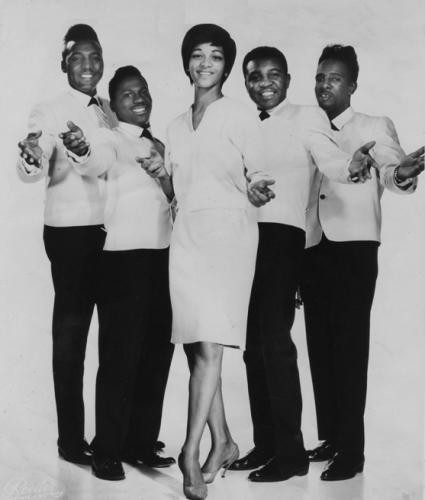The Antennas (3)
Настоящее имя: The Antennas (3)
Об исполнителе:
US vocal group from Chicago, IL. Members: Shirley Shelton, Robert Bailey, Jerry Royal, Billy McGregor, George McGregor The Antennas formed in the Stateway Gardens homes at 35th and State Street; the group initially formed as the Antennas in 1960 when Billy McGregor, his two brothers, and Robert Bailey decided to form a secular, pop group to try to perform professionally. By 1962, the lineup had finalized to Robert Bailey, Jerry Royal, Billy McGregor, and George McGregor (Billy's brother, who was not related to the Detroit George McGregor, who is Billy's Cousin). In 1962, Billy Williams came to Stateway Gardens to audition artists to take with him to perform in a revue in Las Vegas. Billy took the Squires as well as Shirley Shelton (as an Etta James-styled solo artist) with him for a 3-month nightclub booking. In Las Vegas, Shirley ended up making friends with and joining the group. When they returned to Chicago, the Antennas went to different recording companies and endeded up signing with Don Clay's "Clay" record label. They released "Fuji-yama Mama" / "Be yourself" in late 1962. The A-side was a novelty record actually inspired by Robert Bailey's experience with a girlfriend he had while stationed in Japan during the Korean war. The record got some play in Chicago. The flip side was an excellent early soul track, led by Shirley, probably ahead of its time in sound. The Antennas then signed to Don Clay and Ric Williams' Boss record label. The label had previously recorded a group called the Squires and, owning the name, had the Antennas change their name to the Squires, with the idea that they would have a more fashionable stage look, with canes, top hats, etc. The group backed Perk Lee Moses (previously of the El Doradoes) on his solo record "The Docks" / "Peanut Butter", which was released on Boss and also picked up by USA records. At Boss records, Billy McGregor also wrote the track "One Dance" for Ric Lee, which was later recorded by the Creations and by the Classics. "Drip drop" / "I'm in a need" in 1963. "Drip drop" had an excellent soul sound while "I'm in a need" had more of a throwback, Etta James-inspired doowop sound. Although both tracks received much radio play, the record was not distributed to stores and fans were unable to purchase it. Due to frustration over the record, their management, and their lack of the success, the group broke up.

